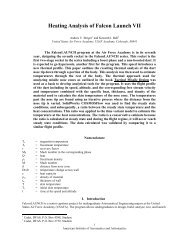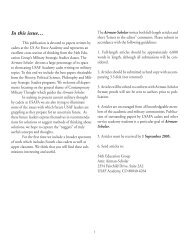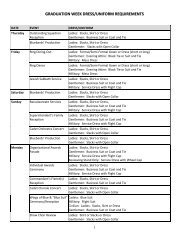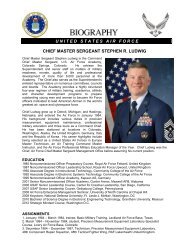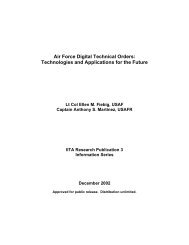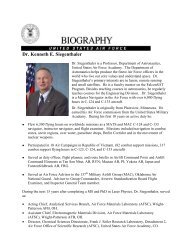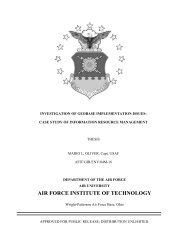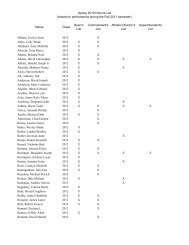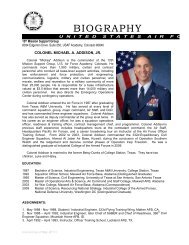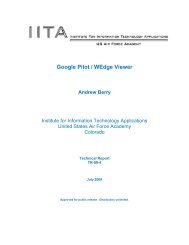the rollback of south africa's biological warfare program
the rollback of south africa's biological warfare program
the rollback of south africa's biological warfare program
Create successful ePaper yourself
Turn your PDF publications into a flip-book with our unique Google optimized e-Paper software.
cover illegal personal gains from <strong>the</strong> sale <strong>of</strong> weapons (including CBW) and<br />
drugs.<br />
CONCLUSION<br />
In this monograph, <strong>the</strong> pr<strong>of</strong>ile <strong>of</strong> South Africa as a state that developed a CBW<br />
<strong>program</strong> has been drawn. South Africa was an isolated state that felt threatened<br />
by a more powerful state actor, <strong>the</strong> Soviet Union, which was helping hostile<br />
regimes and movements in neighboring states. One response <strong>of</strong> <strong>the</strong> apar<strong>the</strong>id<br />
regime to changing threat perceptions in <strong>the</strong> region was to develop a CBW<br />
<strong>program</strong> and to accelerate a nuclear weapons <strong>program</strong>. The decision-making<br />
process, which was secretive and controlled by <strong>the</strong> military, enabled a very<br />
sophisticated <strong>program</strong> to be developed with little outside scrutiny. Military and<br />
police units used chemical and <strong>biological</strong> agents for counter-insurgency<br />
<strong>warfare</strong>, assassination, and execution <strong>of</strong> war prisoners. As <strong>the</strong> regime felt<br />
increasingly threatened by opposition at home, top political leaders approved<br />
plans for research and development <strong>of</strong> exotic means to neutralize opponents,<br />
large-scale <strong>of</strong>fensive uses <strong>of</strong> <strong>the</strong> <strong>program</strong>, and weaponization. However, <strong>the</strong><br />
plans were not operationalized. The end <strong>of</strong> <strong>the</strong> external threat led to a decision<br />
to unilaterally dismantle <strong>the</strong> <strong>program</strong> prior to a shift to majority rule. Lack <strong>of</strong><br />
civilian control over military <strong>program</strong>s made <strong>the</strong> <strong>rollback</strong> difficult, rife with<br />
corruption and left proliferation concerns in place. Ultimately, <strong>the</strong> United<br />
States, Great Britain and o<strong>the</strong>r countries pressured <strong>the</strong> South African<br />
government to ensure that <strong>the</strong> CBW <strong>program</strong>s were dismantled and <strong>the</strong> former<br />
project manager, Dr. Wouter Basson, constrained. Since Basson secretly<br />
retained copies <strong>of</strong> Project Coast documents, proliferation concerns remain.<br />
The information that has emerged to date about Project Coast suggests<br />
that a country that possesses chemical and <strong>biological</strong> weapons is likely to use<br />
<strong>the</strong>m against adversaries at home and abroad. The unpredictable and harsh<br />
environment <strong>of</strong> sou<strong>the</strong>rn Africa did not deter conventional or counterinsurgency<br />
units from experimenting with <strong>the</strong>se weapons. However, in both<br />
87




